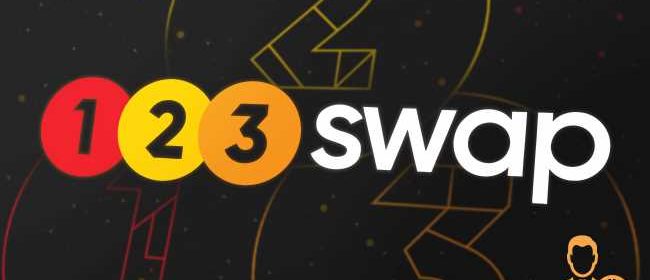Token Swapping: Best Practices for Businesses – 123swap.finance

Many projects are performing token swaps to allow holders to exchange their existing tokens for updated ones as the blockchain industry matures and businesses expand following successful ICOs. It might be due to a mainnet migration, a modification to the underlying smart contracts, or an increase in the token supply, among other things (similar to stock splits in traditional markets).
We feel this is a healthy development for the industry, as it expands user alternatives and strengthens crypto project capabilities, but such moves are not without danger. Token swaps, if done incorrectly, may result in a plethora of issues for both corporations and token holders. It is an issue that is near and dear to our hearts at IDEX since we have witnessed countless token exchanges, both excellent and negative.
Why 123swap?
Cross-chain liquidity pools have more than 500 options for users to select from (Ethereum, Binance, Polkadot, and many more). In addition to supporting the most popular protocols, the platform also offers the lowest costs and the highest annual percentage yield (APY) (Annual Percentage Yield). When compared to other DeFi systems, 123swap stands out because of the following capabilities.
Indefinite Token Swaps Minimize Risk
The most prevalent cause of token swap issues is that corporations limit the time consumers have to trade their tokens. People might easily miss or neglect a notification for various reasons – they could be unwell, on vacation, or just busy — and therefore miss the window. As a result, there are a lot of disgruntled people who have tokens that are now useless. If the issuer executes its swap in this manner, it is almost sure that someone will miss it.
To circumvent this, smart contracts that allow token swaps to continue forever are recommended. Holders of old tokens who miss the announcement will still be able to participate later, and their existing tokens will not become worthless.
This approach also benefits collecting and burning old tokens, which takes them out of circulation. Allowing the circulation of both new and old tokens gives fraudsters an extraordinary chance to continue selling the old token to unknowing clients. It is essential to have an endless swap so that the token supply remains steady, and users who already own the old token may continue using it in exchange for the new one when released.
Conduct Airdrops with Caution
It presents a unique set of problems since token swapping through airdrop requires users to keep their coins in a wallet or on a specific exchange at a particular point in time.
As long as users are prepared for the snapshot, an airdrop makes redeeming their tokens a cinch. It means that not all users will be ready to take advantage of this little window of opportunity, as previously mentioned.
A project that does not give adequate advance notice of a forthcoming token airdrop may find that the exchange in question cannot coordinate the necessary processes for accommodating a swap. When using a block explorer like Etherscan to see IDEX deposits, all deposits are linked to the IDEX contract address. However, if a project sends the airdrop token straight to the contract, it will be permanently locked and burnt in our smart contract, with no way out for even the exchange’s management. When token holders demand their tokens, and we cannot provide them, we hear about it after the fact.
IDEX tries to assist as much as possible in these cases, but it is frequently too late after the switch has taken place. When a swap goes wrong, it can take a long time and a lot of resources to fix it. In certain circumstances, a whole new token is needed to ensure that everyone gets entitled tokens. Everyone loses in the long run: the project, the community, and the exchange.
Communication is Key
Allowing sufficient time and giving clear instructions are critical to the token swap’s success regardless of how it’s carried out. To reduce the danger of oversight and create correct processes, projects must communicate with their consumers and exchanges well before any swap. It is critical, and we cannot overstate it. The likelihood of making a mistake decreases when you have lots of time, clear instructions, and open contact with the exchanges dealing with your token.
These trades will impact more and more individuals as blockchain technology develops and becomes more widely used. Because of this, their success is critical to the blockchain industry’s future.
123swap offers an ecosystem of goods and services that enables consumers to swap, hold, send, receive, earn, and invest tokens across many chains in a single place at the same time. To minimize difficulties such as a confusing interface, hidden fees, and a time-consuming registration procedure, the platform has designed its conversion method to simplify the process for the end-user.
Final Thoughts
By performing them incorrectly, organizations and token holders might be subjected to a variety of risks. We at IDEX want to share what we’ve learned so that other initiatives can avoid making the same mistakes we did. Token swaps frequently fail because corporations give their customers a limited amount of time to exchange their tokens. Using smart contracts that let token swaps continue forever can help you avoid this issue. It is essential to have an endless swap so that the token supply remains steady, and users who already own the old token may continue using it in exchange for the new one when released.
When a swap goes wrong, it can take a long time and a lot of resources to fix it. In certain circumstances, a whole new token is needed to ensure that everyone gets entitled tokens. To reduce the danger of oversight and create correct processes, projects must communicate with their consumers and exchanges well before any swap.
More info at https://123swap.finance/
Related posts:
Source: Read Full Article

